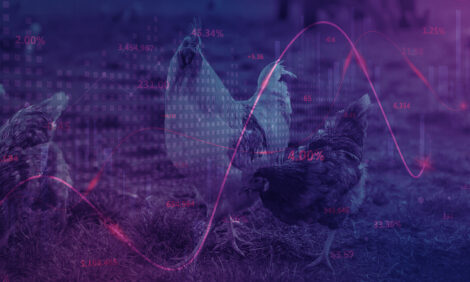



France Reflects on Cost of Cheap Food at Any Price
“The real victims of the latest [agricultural] crises are those who have invested the most,” French farm minister, Bruno Le Maire, told delegates at a day-long conference in Paris to discuss the way agricultural commodity prices develop into retail prices for finished product, writes Peter Crosskey.The event at the end of September, hosted by the finance ministry’s trading standards agency the Direction Générale de la Concurrence, de la Consommation et de la Répression des Fraudes (DGCCRF), drew an estimated 300 delegates from across the French food industry.
Later in the day, the finance minister, François Baroin, arrived directly from a top-level Washington meeting of the world’s finance ministers. Jet-lagged but determined to put his ministry’s event in context, Mr Baroin reminded his audience that yearly trading in hedge funds and derivatives in Chicago is equivalent to 46 times the total value of US agricultural production.
The combined message from both the ministers is that France will defend its position on the Common Agricultural Policy (CAP) against the world and not just its European neighbours. One of the biggest challenges France faces, however, is using the same word in a different way from the English-speaking world.
The French term competitivité is generally taken to mean being competitive in the sense of “properly equipped” rather than just cheaper on price. It is certainly how both ministers see French competitivity, in a market driven by tangible production rather than notions of what a price should be at some point in the future.
As Mr Baroin told his audience, competitivity: “...is a tool which should allow the optimal allocation of resources and the viability of our economy.” However, “...for Europe as for France, competition is not an end in itself.”
Or, as Minister Le Maire said earlier in the day: “The markets must understand that agricultural products are not products like any other.” Just to emphasise the point, the economy ministry has already asked the DGCCRF to step up its action against imbalances in agricultural trading relations as a top priority.
The source of the ministry’s data and analysis comes from the Observatory on Prices and Margins, whose secretary general, Philippe Boyer, gave a presentation of the observatory’s annual report. (For more information, click here].
“Between 1998 and 2007, agricultural products have been undersold,” Mr Boyer told ThePoultrySite.
However, the French government’s first measure to strengthen producers’ positions has been to require contracts under the 2010 Law to Modernise Agriculture (LMAP). The president of milk producers’ association, Henri Brichart, spoke for the dairy sector, where producers have seen unpopular contracts imposed unilaterally.
He declared: “Farmers are not afraid of a market that works to rules.”
Another speaker encapsulated the underlying problem with contracts for the different agricultural sectors, namely the time window within which they can be traded. International grain trading director of Invivo, Didier Nedelec, warned that the world economy does not invest in the long term. So although a cereal producer can wait for prices to improve before taking grain to market, this is simply not an option for livestock producers: “...a finished pig on the hoof goes to market to be sold, that’s all there is to it.”
October 2011









